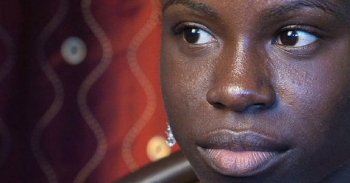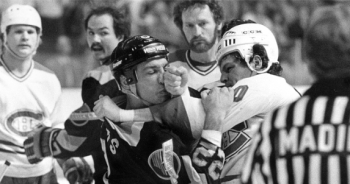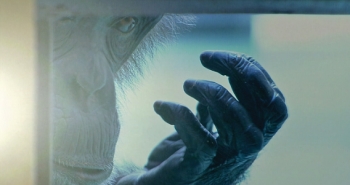

By Kim Voynar Voynar@moviecitynews.com
TIFF ’11 Preview: Real to Reel
There are 26 films in the Real to Reel section of TIFF this year, of which I’ll be able to catch maybe five or six. As always, it’s hard to tell by the catalog descriptions which films you’re going to love and which you aren’t; in 2009, I wouldn’t have necessarily had The Topp Twins doc at the top of my list, but it ended up being one of my favorite films of that year.
So as with all fest previews, take this one with the generous grain of salt that most of the films on this list are the ones whose subject matter most interested me; your list might very well be completely different. Such is the fun and randomness of TIFF.

Dark Girls
Bill Duke and D. Channsin Berry, USA
Directors Bill Duke and D. Channsin Berry set out to examine why skin-colour bias persists and how it affects the lives of women on its receiving end. This is a documentary of testimony. In emotional, heartfelt interviews, women tell stories of being judged inferior, less attractive and even less intelligent because of their dark skin. They tell of black men passing them over in favour of lighter-skinned women. They also speak of judging one another based on skin colour, and of how it feels to internalize racism that dates back to the Atlantic slave trade, but has been left to fester for generations.
Comments: TIFF World Premiere

The Education of Auma Obama
Branwen Okpako, Germany
Branwen Okpako’s The Education of Auma Obama is a captivating and intimate portrait of the U.S. president’s older half-sister, who embodies a post-colonial, feminist identity. An academic overachiever, she studied linguistics and contemporary dance in Heidelberg, Germany, before enrolling in film school in Berlin, where she met Nigerian-born director Okpako in the nineties. After living in the United Kingdom for a short period, Auma Obama eventually moved back to Kenya to mentor a young generation of community activists, social workers and other ambitious young men and women who lacked her privileged education and training, but were nonetheless determined to make a positive contribution to their society.
Comments: TIFF World Premiere
Girl Model
Ashley Sabin and David Redmon, USA
Girl Model shows a rarely seen side of the fashion industry. The film brings a novelist’s eye for emotional and psychological complexity to its portrait of two women. Ashley, an American former model, travels to remote Siberian villages to scout young teenaged girls for fashion shoots in Japan. We see her discover Nadya, a thirteen-yearold blonde, who radiates the innocence coveted by Ashley’s clients. Like thousands of other Russian girls, Nadya sees modelling as the best chance to support her family. She feels lucky when Ashley’s agency offers a contract with guarantees. But as the film follows Nadya to Japan and Ashley on her further scouting trips, we see each one grapple with the kind of harsh realities that fashion magazines tend to ignore.
Comments: TIFF World Premiere

Into the Abyss
Werner Herzog, USA
Crime stories can often fall into a predictable pattern of whodunit, but trust Werner Herzog to bring his own unique approach to the genre. He focuses on a triple homicide case in Conroe, Texas, that occurred ten years ago. Epitomizing the word “senseless,” the apparent motive behind the murders was to steal a car for a joyride. The convicted killers were two teenagers, Michael Perry and Jason Burkett, who had a history of substance abuse and violent bravado. They deny their guilt (each blaming the other), but the verdict was based on strong evidence that Herzog doesn’t challenge. Instead, he probes the legacy of the crime and the psyches of the people involved, unveiling layers of humanity, both cold and compassionate.
Comments: TIFF World Premiere. Also, it’s Werner Herzog. Of course I have to see it.
Last Call at the Oasis
Jessica Yu, USA
When was the last time you worried about getting a glass of fresh water? In some parts of the world, it’s a daily anxiety. But for most people in developed countries, it never registers as a concern. You might consider yourself lucky, but water experts consider you dangerously deluded. In Last Call at the Oasis, we hear from scientists, activists and average citizens who are on the front lines of confronting an impending global water crisis. There’s no escaping it, but shifting our behaviour can lessen the impact. This requires a change in thinking — from individuals, governments and corporations. This invigorating wake-up call from the producers of Food, Inc. and An Inconvenient Truth can play a part.
Comments: I loved Yu’s 2006 doc Protagonist and her 2007 narrative feature Ping Pong Playa’, and a fest just isn’t a fest until I see at least one environmental doc. TIFF World Premiere.
The Last Gladiators
Alex Gibney, USA
Chris “Knuckles” Nilan can chart his hockey career by his scars. He earned those stripes as one the NHL’s fiercest enforcers, throwing punches to defend his teammates. While playing for the Montreal Canadiens in the mid-eighties, his fights racked up penalty minutes but received roaring approval from fans and helped win the Stanley Cup. When injuries forced Nilan to retire in 1992, he faced a new battle: how do you stop being a gladiator and re-enter normal society?
Comments: While hockey isn’t necessarily something I’d normally be interested in, I’m a fan of Gibney’s work and intrigued to see what he’s done with this topic. TIFF World Premiere
Pink Ribbons, Inc.
Léa Pool, Canada
… One of the central issues in the film is the disease’s status as the poster child for what activist Barbara Brenner deems “cause marketing,” a kind of microcosmic variation on disaster capitalism, rife with hypocrisy and awash in money. From car manufacturers to fast food companies to professional sports leagues, corporations have wholeheartedly embraced the effort — but many of the campaigns to raise money have done more for the companies than for the cause. Fuelled by informative and often chilling interviews with activists, patients, former patients and writers (including authors Barbara Ehrenreich and Samantha King, who wrote one of the first studies of the “industry”), Pink Ribbons, Inc. is a ferocious and infuriating exposé.
Comments: I’ve never thought of breast cancer as an “industry,” but this doc promises to shed some light on the world of cause-based fundraising. Okay, I’m intrigued.

Sarah Palin — You Betcha!
Nick Broomfield and Joan Churchill
Sarah Palin is a galvanizing political force in America’s deepening cultural rift. While her missteps are lambasted by critics and satirists, her base of support only grows. After her defeat as a Vice Presidential candidate and her resignation as Alaska’s governor, she retains a red-hot following stoked by her bestselling book Going Rogue: An American Life and the TV series Sarah Palin’s Alaska . She assiduously avoids taking questions from reporters, preferring to communicate with her fans via Facebook and Twitter.
Comments: Oh, c’mon. You know you want to see it.
Filmmaker Nick Broomfield has never been fazed by uncooperative subjects, conducting his pursuits like a vigilante armed with a boom pole, frequently backed by his collaborator Joan Churchill behind the camera. His past documentary targets include Margaret Thatcher, Courtney Love and Heidi Fleiss. When headline makers block his access, he brings them down to a human scale by exploring their milieu.
Surviving Progress
Mathieu Roy and Harold Crooks, Canada
Like some of the key socio-political documentaries of the last ten years — The Corporation, Manufactured Landscapes, An Inconvenient Truth, Force of Nature and Inside Job — Surviving Progress raises critical questions about the pivotal mistakes society has made. It does so from a remarkable big-picture perspective, seamlessly tackling multiple and disparate issues. The question of how we escape the traps leads to even deeper concerns about the potential fixes.
Comments: Environmental doc, check. Sports doc, check. Femme-themed docs, check. Socio-political doc, check. No, seriously. This looks potentially interesting, right?
* All film descriptions are from the TIFF catalog.



















